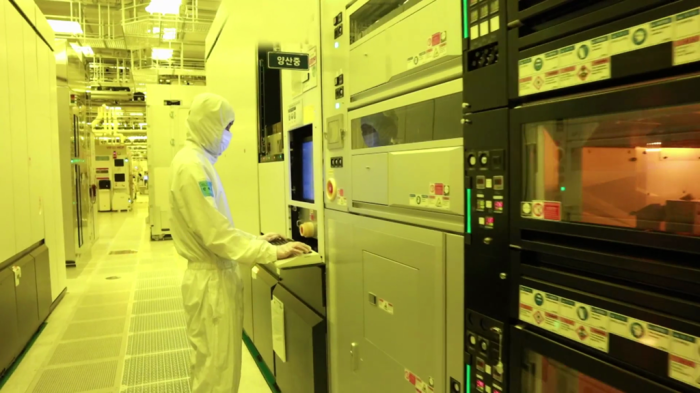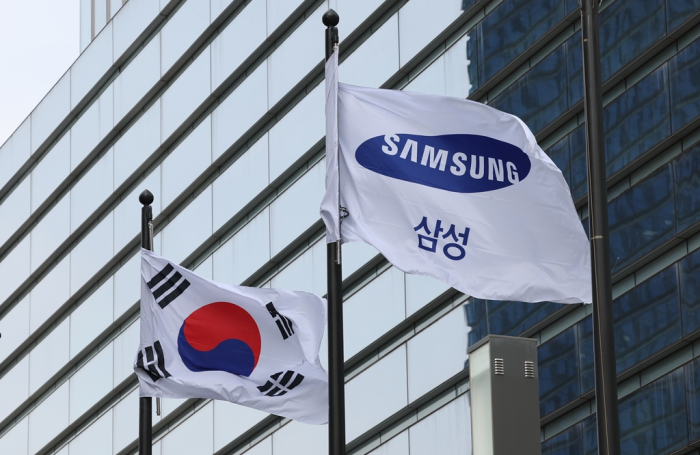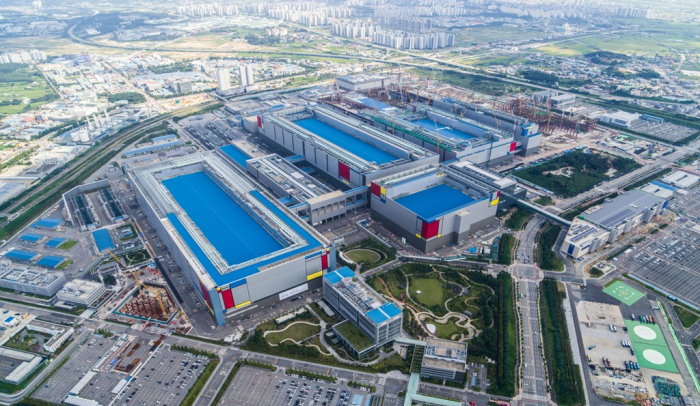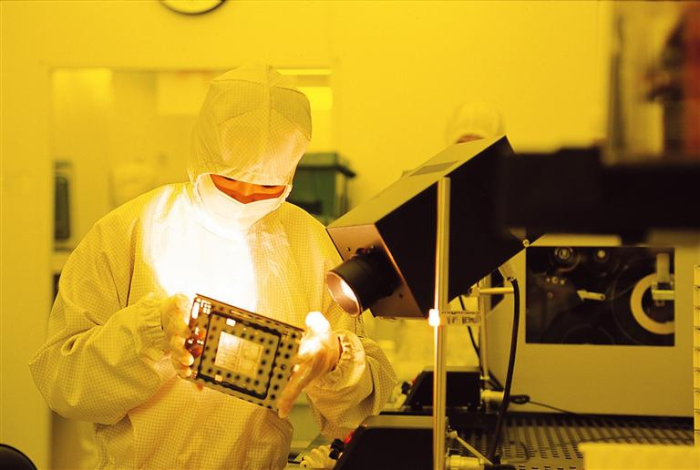Regulations
South Korea vulnerable to tech spies undeterred by soft penalties
Officials call for harsher punishment as attempts to smuggle key tech out of Korea increase
By Nov 14, 2023 (Gmt+09:00)
5
Min read
Most Read
LG Chem to sell water filter business to Glenwood PE for $692 million


Kyobo Life poised to buy Japan’s SBI Group-owned savings bank


KT&G eyes overseas M&A after rejecting activist fund's offer


StockX in merger talks with Naver’s online reseller Kream


Mirae Asset to be named Korea Post’s core real estate fund operator



When a former Samsung Electronics Co. executive was arrested on industrial espionage charges by South Korea’s National Intelligence Service (NIS) agents and prosecutors at a Seoul airport upon arrival from Beijing in May, he appeared to be doomed.
The executive, identified by multiple media outlets as Choi Jin-seok, allegedly stole Samsung’s trade secrets and in collusion with capital investors in China and Taiwan attempted to build a copycat semiconductor factory in China, just 1.5 km away from a Samsung plant there, an indictment by Korean prosecutors showed in June.
Choi, who denies the charges, is now detained awaiting trial.
The tech theft, prosecutors allege, caused several billions of dollars in damages to Korea – home to the world’s two largest memory chipmakers, Samsung and SK Hynix Inc.
In another tech theft case, a professor of Korea’s prestigious technology university KAIST, in 2020 was involved in an autonomous driving car research project led by China’s Chongqing University.
Accused of leaking technology related to LiDAR, often referred to as the “eyes” of self-driving cars, he was prosecuted, tried and sentenced to two years in prison. Judges, however, granted him a three-year suspended sentence, meaning he got out of jail and didn't have to serve his term unless he committed another serious crime during his probation period. Judges said at the time that the personal gains he obtained from the tech leak were insignificant.

A third case that also led to no serious punishment involves an Indian researcher who stole 320 design drawings for the electrical wiring of special ships such as oil drilling vessels in 2015. He had been working at Korea’s three major shipbuilders – Hyundai Heavy, Samsung and Daewoo.
Prosecutors estimated the value of the stolen drawings at 3 trillion won ($2.3 billion). Korean courts, however, sentenced him to a jail term of 10 months suspended for two years, saying no actual damage had occurred.
The Indian researcher went home and the case was closed.
“Technology theft is a serious crime that has a significant impact on national security and the economy. Yet, the current legal system doesn’t properly reflect the seriousness of tech theft. Penalties aren’t harsh enough to prevent such crimes,” said an NIS official.
SOFT PENALTIES BACKFIRE
According to an analysis of government documents by The Korea Economic Daily, 1,310 industrial property theft cases were detected by the Korean Intellectual Property Office (KIPO), came under prosecutor investigation and faced trial from March 2019 to October this year. Still, none of the accused were given prison terms of more than six months.
Of the total, four were sentenced to a jail term of less than six months. Twenty offenders were slapped on the wrist with fines between 1 million won and 5 million won ($756 to $3,768) while seven were fined 5 million-10 million won.
The Korea Economic Daily analysis showed Korean courts gave lenient rulings, saying the accused were first-time offenders, showing sincere remorse over their wrongdoings, or compensated their victims.
In some cases, those accused weren’t indicted as the affected companies were deemed to have neglected trade secret management.

According to data from the NIS, more than 30 chip-related technology leaks have occurred since 2018 – a fourfold increase from seven in the five years prior.
Of all 104 tech leak cases identified in the past five years, 60 cases, or 58%, were related to national strategic technologies, including semiconductors, displays and batteries – key growth drivers for Korea, Asia’s fourth-largest economy. Previously, tech theft and misappropriation of trade secrets concentrated on such sectors as shipbuilding, automobiles and machinery.
The spy agency estimated damages inflicted on Korean companies by illegal activities over the past five years at 25 trillion won.
“Detected cases could be just the tip of the iceberg,” said the NIS official.
TECH SMUGGLING: GETTING SOPHISTICATED
Industry officials said cross-border tech smuggling has become sophisticated, making it harder for authorities to detect.
Some crimes were committed under the pretext of industry-academia cooperation and technology consulting.

Cloud and social networking services were often the means of transferring trade secrets. In some bold cases, companies were wholly purchased to steal technology.
To bypass rules banning moving to a rival company over a certain period, top-notch engineers and technicians were hired by competitors not as employees but as advisers or consultants.
“Now is the time to establish a unified national organization to effectively implement industrial rights protection rules and define the types of strategic technologies, currently designated differently by various ministries,” said another NIS official.
In Korea, laws on technology protection and strategic technology are handled by six ministries, including the Ministry of Trade, Industry and Energy; the Ministry of SMEs and Startups; the Ministry of Science and ICT; and the Ministry of Economy and Finance.
TOUGHER PUNISHMENTS REQUIRED
Korea’s law enforcement and industry officials are demanding harsher penalties for technology theft that hurts national security.
Tech theft crimes are subject to at least three years of imprisonment under the Unfair Competition Prevention Act and up to 15 years behind bars under the Industrial Technology Protection Act.

“The Supreme Court needs to revise its sentencing guidelines to allow harsher punishments for serious tech stealing crimes,” said a KIPO official.
The growing calls for tougher penalties in Korea come as advanced countries are moving to strengthen their already harsh rules on illegal acts.
The US, for instance, classifies technology theft crimes as espionage and enforces them under the Economic Espionage Act (EEA) and the Defend Trade Secrets Act (DTSA), allowing for up to 15 years of imprisonment and fines of up to $5 million for cases classified as economic espionage.
Companies involved in such cases also face civil lawsuits, subject to astronomical financial compensation for damages.
Japan has revised its unfair competition prevention act, significantly strengthening penalties, including longer prison terms, and confiscating criminal proceeds.
Write to Jin-Won Kim at jin1@hankyung.com
In-Soo Nam edited this article.
More to Read
-
 Artificial intelligenceSamsung unveils generative AI Gauss, to be integrated in Galaxy S24
Artificial intelligenceSamsung unveils generative AI Gauss, to be integrated in Galaxy S24Nov 08, 2023 (Gmt+09:00)
4 Min read -
 Business & PoliticsSamsung, SK granted indefinite US waiver on chip gear supplies to China
Business & PoliticsSamsung, SK granted indefinite US waiver on chip gear supplies to ChinaOct 10, 2023 (Gmt+09:00)
3 Min read -
 EconomySouth Korean exporters jittery as China's slowdown raises red flag
EconomySouth Korean exporters jittery as China's slowdown raises red flagAug 30, 2023 (Gmt+09:00)
3 Min read -
 Korean chipmakersEnemies at the door: Copycat Samsung plant in China
Korean chipmakersEnemies at the door: Copycat Samsung plant in ChinaJun 13, 2023 (Gmt+09:00)
4 Min read
Comment 0
LOG IN


